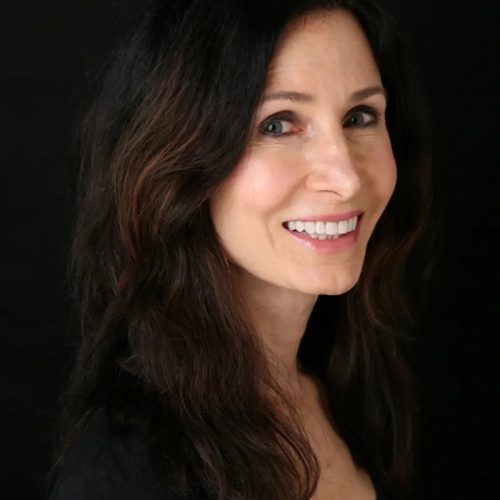Hands-on Filmmaking Workshop at NYFA
NYFA’s 1-Week Filmmaking Workshop is an intensive film program where students are introduced to the fundamentals of film, including writing, directing, camera and digital editing.
Workshop DescriptionWorkshop Name: 1-Week Filmmaking Workshop
During this intensive workshop, each student writes, directs, shoots, and edits a short film project while going through rigorous coursework taught by an industry professional. Students use digital cameras, lighting packages, and digital editing software provided by NYFA to create a unique project. All students enrolling in the 1-Week Filmmaking Workshop should be aware that this is an introductory program.
The week-long workshop is a great program for students who may be considering pursuing film further, and graduates of the 1-Week Filmmaking Workshop often choose to continue their film studies in NYFA’s semester, certificate, and degree programs.
NYFA also offers the possibility to learn filmmaking from anywhere through a variety of online filmmaking workshops.
To learn more, see NYFA’s Course Catalog or request more information.
CLASS DETAILS
Filmmaking
The One Week Filmmaking workshop introduces students to the basic principles of writing and directing a short film. As writers, students will shepherd a story from initial idea through the treatment, outline, and finally shooting script. As directors, students will focus on the fundamentals of visual storytelling. They will learn concepts to help achieve maximum psychological impact by studying the director’s decisions in camera placement, blocking, staging, and visual image design. Students will be challenged to think comprehensively about their film projects in terms of the economic realities of low budget student production. Using their own film projects as prototypes, students will learn to break down their film scripts in terms of story and emotional beats as well as shot selection and composition. This Area of Study will be the forum for preparing, screening and critiquing one short film.
Hands-on Camera and Lighting
In this Area of Study, students undergo intensive training in the use of HD digital video cameras and their accessories. Through hands-on workshops and film tests, they will also learn fundamental lighting techniques. As they progress, they learn how to support the mood of the story with lighting choices and they experiment with expressive lighting styles.
Hands-on Editing
This Area of Study presents students with multiple aesthetic approaches to editing film and video. Students will learn how to apply concepts such as temporal continuity and spatial continuity, as well as less traditional discontinuous editing techniques to their work. The Area of Study will also discuss the psychological and emotional effects of editing on the overall story. Additionally, students will learn to operate an editing software, which they will use to edit their own films. Classes are supplemented with individual consultations at the computer.
TIMES AND BREAKDOWN BY WEEK
These are intensive, full-time Monday through Friday programs that typically run in three x 3hr sessions from 9 AM-6:30 PM. There are breaks in between sessions. Depending on the workshop, there may be shoots held on the weekend. Students will need to anticipate extra time outside of class to complete assignments, projects, and exercises. Daily class times may vary. Request information to learn more.
PROGRAM AND SOFTWARE REQUIREMENTS
This course requires the following software and equipment:
- External hard drive (generally costs $30-$200)
- An SD Card
1-Week Filmmaking Workshop
| Location | Program Start Date and End Date | Tuition |
|---|---|---|
| New York City | May 19, 2025 – May 24, 2025 June 9, 2025 – June 14, 2025 July 14, 2025 – July 19, 2025 August 11, 2025 – August 16, 2025 October 13, 2025 – October 18, 2025 May 11, 2026 – May 16, 2026 June 1, 2026 – June 6, 2026 October 5, 2026 – October 10, 2026 | Tuition and Equipment & Technology FeeTuition:$1,771 Equipment & Technology Fee:$146 Wellness Services & Programming Fee:N/A |
| Los Angeles | June 2, 2025 – June 7, 2025 July 7, 2025 – July 12, 2025 August 4, 2025 – August 9, 2025 September 15, 2025 – September 20, 2025 October 6, 2025 – October 11, 2025 May 11, 2026 – May 16, 2026 June 1, 2026 – June 6, 2026 October 5, 2026 – October 10, 2026 | Tuition and Equipment & Technology FeeTuition:$1,771 Equipment & Technology Fee:$146 Wellness Services & Programming Fee:N/A |
| Miami | June 2, 2025 – June 7, 2025 July 7, 2025 – July 12, 2025 September 15, 2025 – September 20, 2025 | Tuition and Equipment & Technology FeeTuition:$1,771 Equipment & Technology Fee:$146 Wellness Services & Programming Fee: |
| Florence, Italy | July 27, 2025 – August 2, 2025 | Tuition and Equipment & Technology FeeTuition:$1,771 Equipment & Technology Fee:$146 Wellness Services & Programming Fee: |
Students must write, shoot, direct, and edit one film project to complete the 1-Week Filmmaking Workshop. To learn more about the film projects at NYFA’s film school, visit the projects page .
Please note: Equipment, curriculum, and projects are subject to change and may vary depending on location. Students should consult the most recently published campus catalog for the most up-to-date curriculum.


